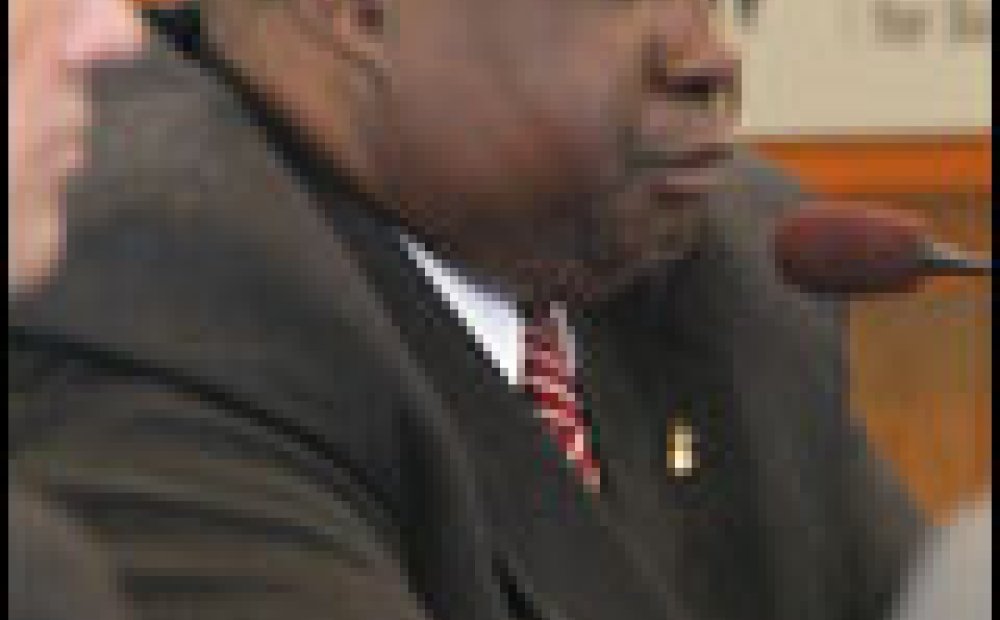Kenya after Moi

In a roundtable cosponsored by the Robert F. Kennedy Center for Human Rights, renowned Kenyan human rights advocate, Dr. Gibson Kamau Kuria, spoke about the evolution of Kenyan democracy and the country’s human rights environment. Gibson focused on the problems of the newly installed Kibaki government in changing the face of Kenyan politics after the end of the Moi regime.
Kuria began by explaining the foundation of the current Kenyan constitution that was formulated not long after the independence of the country in 1963. This constitution, according to Kuria, was theoretically based on the ideals of the British parliamentary system, but in fact was formulated in a way that ensured KANU’s one party “lock” on the government that lasted from Jomo Kenyatta’s presidency in 1964 to the end of Moi’s presidency in 2002.
Kuria and his colleagues believe that the current rewriting of the constitution will be a major stimulus to further democratization in Kenya. Kuria feels that the current constitution undermines democracy by permitting an excessive concentration of power in the executive branch of the government that could possible reemerge in the future. Kenyans, he said, were not fighting against Moi himself, but against the constitutional structure that allowed Moi to abuse his power. Queried about the view of some observers that there is really no need for an entirely new constitution and that a few amendments to the current constitution would suffice, Kuria responded that few Kenyans hold this view and that it is not a view that is well received. Solely amending the constitution, Kuria noted, would not allow for a truly democratic constitution and would sustain the echo of Britain’s colonial control over Kenya.
Kuria observed that the Kibaki government is now taking on the tremendous task of national reconstruction. However, before national reconstruction can occur, the government must confront its past demons of corruption. At the top of the list of corruption problems to be corrected is the theft from the national treasury of $2 billion between 1990 and 1994. The government is currently inquiring as to where this money went, to whom, and how it was stolen.
Kuria stated that a major challenge in this corruption inquiry is time. There is still a danger that important players in the former regime will use stolen money to corrupt the new government or to encourage ethnic violence to regain power. Therefore, time is of the essence. Kuria said that the administration is ready to do whatever it takes to fight corruption. Swift action will be taken to bring those who broke the law to justice; the government will not tolerate a “wait-and-see” strategy. Kuria emphasized that delays in the pursuit of justice in the corruption scandals could lead to public cynicism, a decline in morale and could possibly open a window of opportunity for former offenders to reclaim control over Kenya.Roundtable participants asked whether Kenya has considered mirroring the South African Truth and Reconciliation model by offering amnesty to those who fully disclose any corrupt activities. Kuria expressed his support of the creation of a Truth and Reconciliation mechanism; however, he said that it is too early to know with certainty whether such a mechanism will be established. The government, he explained, is currently focused on the securing of indictments of individuals accused of corruption.
To ensure a quick and complete change in Kenya, Kuria asserted, continued aid by the United States in the fight against corruption is essential. Economic progress is accelerated by democracy and American economic interests in Kenya are at stake if democracy in Kenya fails. Therefore, American aid is essential to the success of the new Kenyan government. Kuria expressed his conviction that fighting corruption in Kenya will lead to democracy, economic success, a more secure country and, eventually, a more successful Africa. Kuria stressed that Kenya is and has always been somewhat of a political and economic example for the rest of Africa. A strong democracy in Kenya will lead other African nations down the same path to democracy and economy success. Democracy in Kenya is therefore good for all of Africa.
During the discussion Kuria made several other points regarding the Moi to Kibaki transition.
- The government is now making an effort to establish programs that encourage interethnic dialogue and is doing all it can to discourage ethnic discrimination.
- Regarding gender rights, Kuria noted significant progress, including a substantial increase in the number of women appointed to high-ranking government positions.
- Regarding pending anti-terrorism legislation, Kuria said that comments have been invited from civil society. While there needed to be an appropriate response to terrorism, Kenyans were attempting to also to protect hard won new civil liberties. He added that the weakened security of the country is in part due to the corruption of the past regime; therefore, the end of corruption will contribute to the creation of a more secure Kenya.
Nicole Rumeau, Program Assistant, 691-4097
Howard Wolpe, Director
Hosted By

Africa Program
The Africa Program works to address the most critical issues facing Africa and US-Africa relations, build mutually beneficial US-Africa relations, and enhance knowledge and understanding about Africa in the United States. The Program achieves its mission through in-depth research and analyses, public discussion, working groups, and briefings that bring together policymakers, practitioners, and subject matter experts to analyze and offer practical options for tackling key challenges in Africa and in US-Africa relations. Read more
